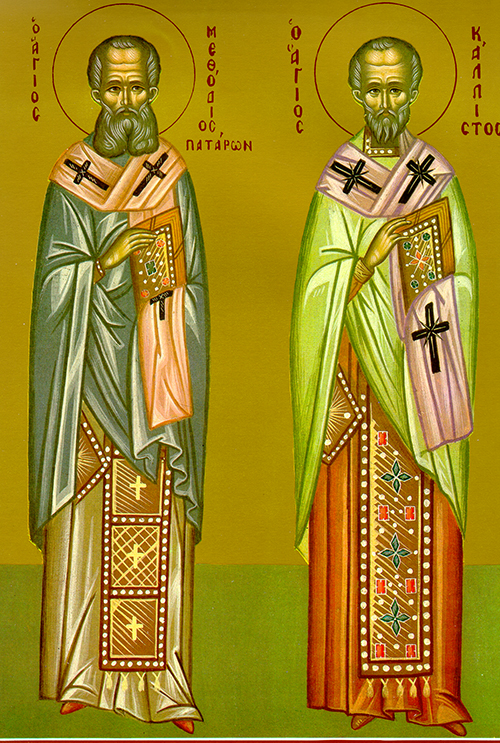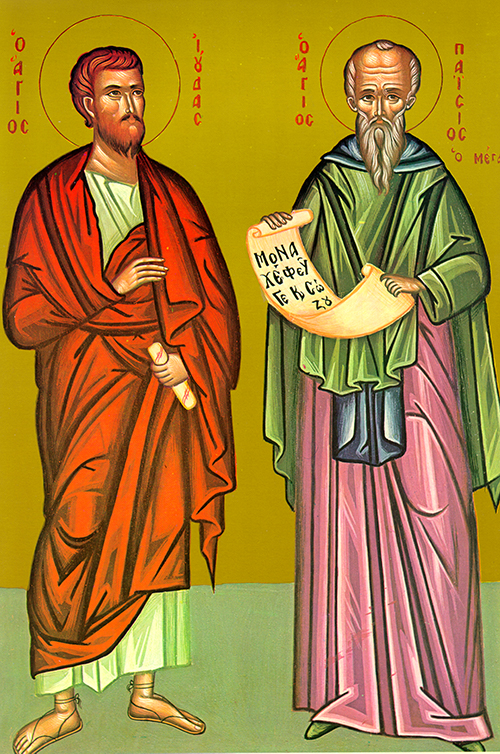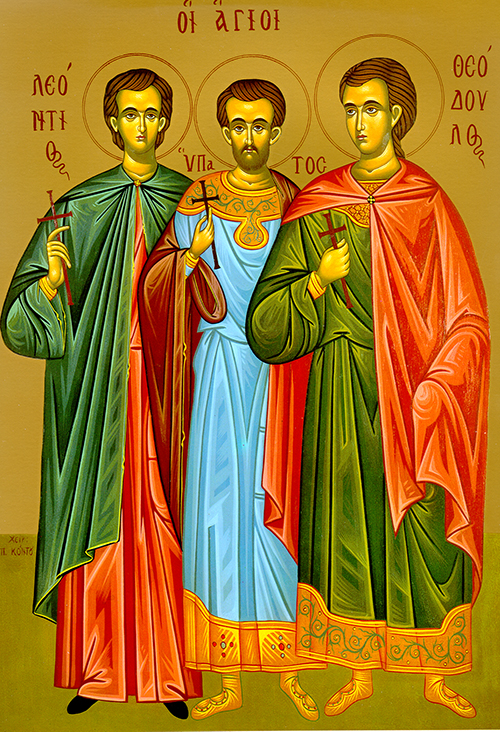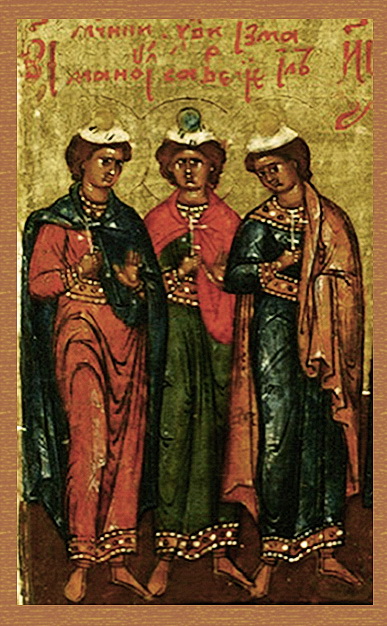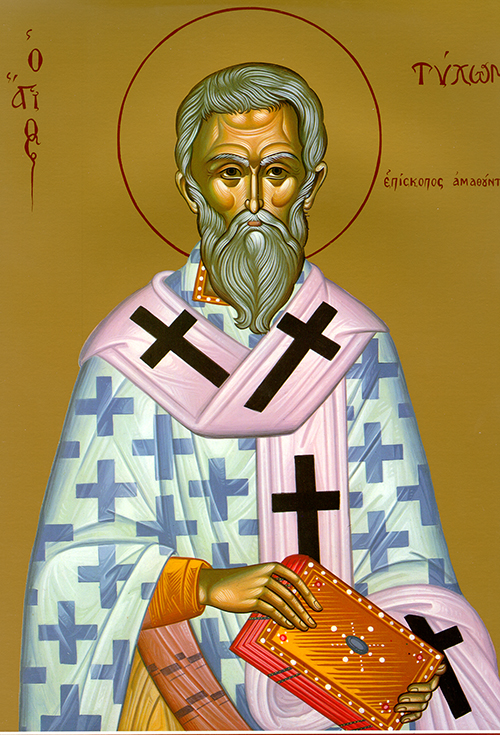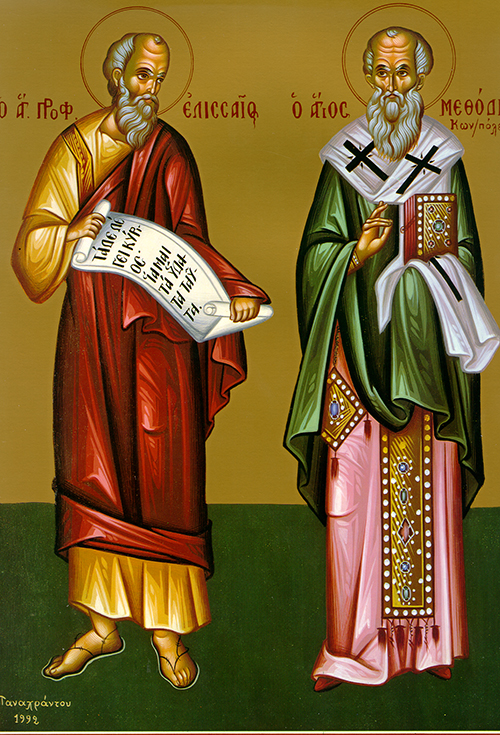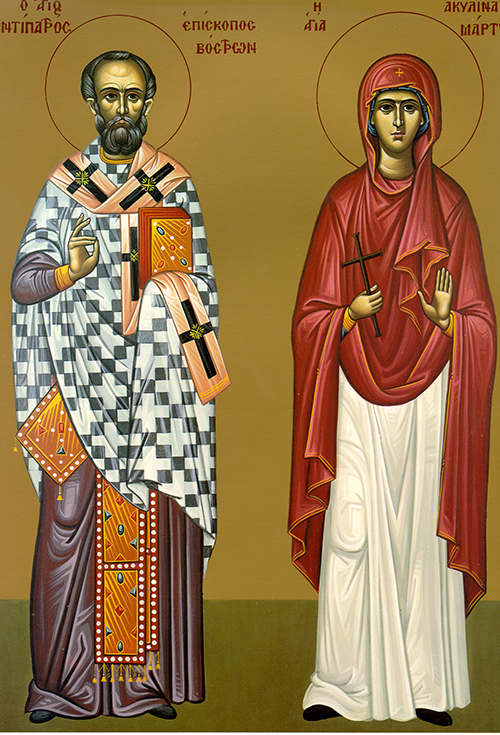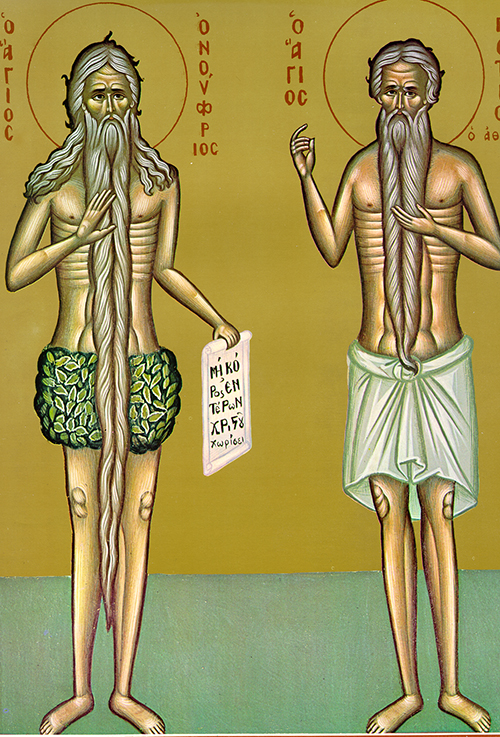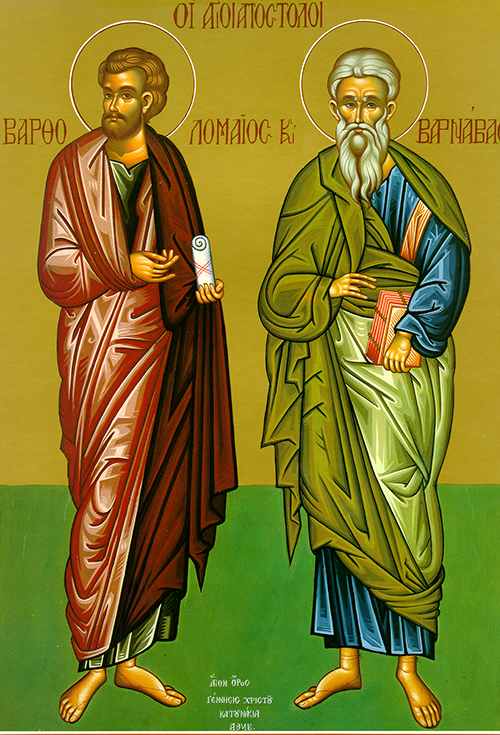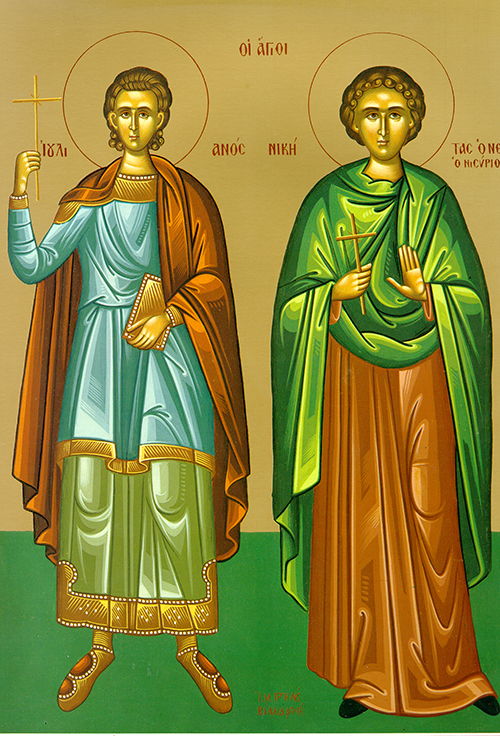

The holy martyr Julian was of noble and senatorial origin. He lived in Tarsus in Cilicia and suffered during the reign of Diocletian. Even though he was only eighteen years old when he was subjected to torture for the Faith, St. Julian was sufficiently educated and strengthened in Christian piety. The imperial deputy led him from town to town for an entire year, torturing him and all the while trying to persuade him to deny Christ. Julian’s mother followed her son at a distance. When the deputy seized Julian’s mother and sent her to counsel her son to deny Christ, she spoke to him for three days in prison, giving him the opposite advice, teaching him and encouraging him not to lose heart but to go to his death with thanksgiving and courage. The torturers then sewed Julian in a sack with sand, scorpions, and serpents and cast the sack into the sea. Julian’s mother also died under torture. St. Julian’s relics were thrown onto the shore by the waves, and the faithful translated them to Alexandria and buried them honorably in the year 290.
Troparion
O Lord our God, your martyr Julian has deserved the crown of immortality on account of his good fight. Armed with your strength, he has vanquished his persecutors and crushed Satan’s dreadful might. Through his supplications, O Christ our God, save our souls.
Kontakion
Today let us praise Julian, an invincible warrior in holiness, the herald and soldier of truth. Let us cry out to him: Intercede with Christ our God for our salvation.
Epistle
Romans 3: 19-26
Brothers and sisters: We know that everything the law says is addressed to those who are under its authority. This means that every mouth is silenced and the whole world stands convicted before God, since no one will be justified in God’s sight through observance of the law; the law does nothing but point out what is sinful.
But now the justice of God has been manifested apart from the law, even though both law and prophets bear witness to it – that justice of God which works through faith in Jesus Christ for all who believe. All men have sinned and are deprived of the glory of God. All men are now undeservedly justified by the gift of God, through the redemption wrought in Christ Jesus. Through his blood, God made him the means of expiation for all who believe. He did so to manifest his own justice, for the sake of remitting sins committed in the past – to manifest his justice in the present, by the way of forbearance, so that he might be just and might justify those who believe in Jesus.
Gospel
Matthew 7: 1-8
The Lord said: “If you want to avoid judgment, stop passing judgment. Your verdict on others will be the verdict passed on you. The measure with which you measure will be used to measure you. Why look at the speck in your brother’s eye when you miss the plank in your own? How can you say to your brother, ‘Let me take that speck out of your eye,’ while all the time the plank remains in your own? You hypocrite! Remove the plank from your own eye first; then you will see clearly to take the speck from your brother’s eye.
“Do not give what is holy to dogs or toss your pearls before swine. They will trample them under foot, at best, and perhaps even tear you to shreds.
“Ask, and you will receive. Seek, and you will find. Knock, and it will be opened to you. For the one who asks, receives. The one who seeks, finds. The one who knocks, enters.”
Icon courtesy of Jack Figel, Eastern Christian Publications – ecpubs.com


